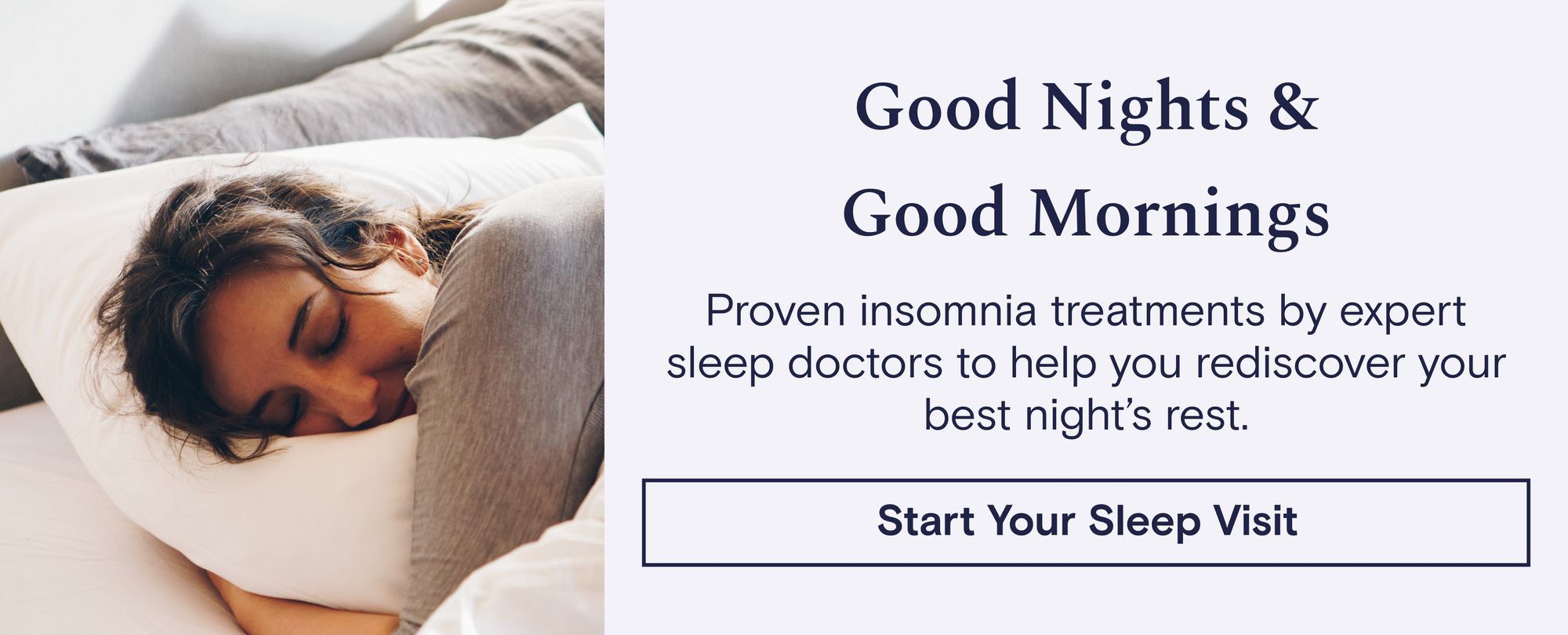Trazodone is an antidepressant, a type of medication often prescribed to those experiencing depression.
It works by increasing levels of serotonin, a naturally occurring chemical that contributes to your happiness and energy. Serotonin is also believed to help your body produce melatonin, another chemical produced in your body that’s crucial to sleep.
Trazodone is considered to be non-addictive and is not a controlled substance.
What Is Trazodone Used For?
Primarily, Trazodone is prescribed by doctors to minimize symptoms of depression. Those experiencing depression often report:
- A persistent feeling of sadness
- Tiredness
- Moodiness or irritability
- Loss of interest
- Sleeplessness
- Lack of energy
- Change in appetite
- Trouble focusing
Trazodone has been shown to help with these symptoms by bettering your mood, increasing your daytime energy level, and decreasing your feelings of anxiety.
Often, Trazodone is also prescribed off-label to help with short-term insomnia that’s caused by a significant life change or stressor. In this case, it’s prescribed to be taken once a day right before bed to help you get a full 7-8 hours of rest.
Though it can be used as a singular treatment, most doctors will recommend pairing Trazodone with CBT-i or sleep hygiene improvements to help tackle persistent sleeplessness.

Does Trazodone Have Any Side Effects?
Always make sure to provide your doctor with a fully up-to-date medical history as well as a complete list of all medications you’re taking. Doing this will help minimize any possible side effects.
Some of the most common side effects associated with Trazodone include:
- Drowsiness
- Dizziness
- Having paler than normal skin
- Numbness
- Tingling
- Confusion
- Sweating
- Increased or irregular heart rate
- Shortness of breath
- Difficulty walking
- Uncontrolled muscle twitching
- Blurred vision
- Loss of interest in sex
- Ringing in the ears
Reach out to your doctor if you notice any of these symptoms after starting your Trazodone prescription. Your doctor may choose to adjust your dosage or opt for an entirely different prescription altogether.
Though less common, some more serious side effects are possible with Trazodone. These may include:
- Swelling in hands, feet, ankles, lips, face, or throat
- Rash
- Priapism or erection of penis unrelated to sexual activity
- Yellowing of the skin or eyes
- Increase in frequency of infections
- Increase in frequency of bruising
- Severe abdominal pain or bloating
- Vomiting
- Constipation
- Suicidal thoughts or thoughts of harming yourself
If you experience any of these or other serious side effects, contact your doctor right away.
How Do I Know If Trazodone Is Right For Me?
Insomnia may be common, but finding a solution that works for you is entirely personal. And while Trazodone is known to be an effective sleep treatment option for many, it’s not the right solution for everyone.
Trazodone is a prescription medication and should only be taken when prescribed by a doctor. Consult with your doctor to discuss your insomnia and the best sleep treatment for you.
Reviewed by Dr. Alex Dimitriu
Dr. Alex Dimitriu is a Stanford-trained physician with dual board certification in psychiatry and sleep medicine. The included content is not intended to replace medical advice. Always be sure to discuss any prescription medications with your doctor.




